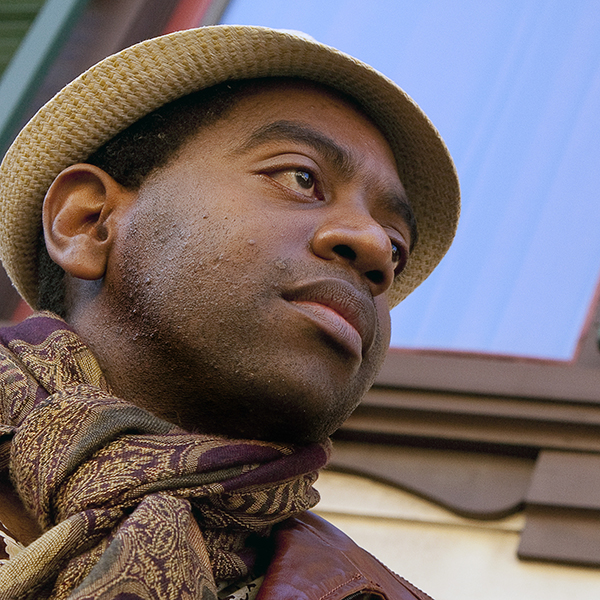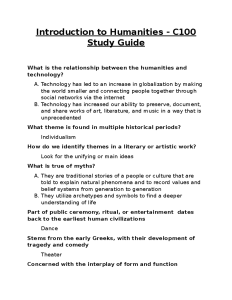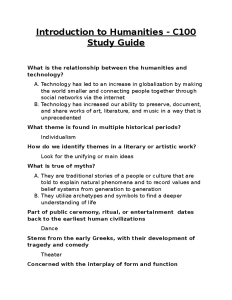Yosvany Terry is a trailblazer in the musical realm, intricately weaving Afro-Cuban music with profound historical narratives. As an internationally renowned musician and composer, he explores the musical traditions rooted in the African diaspora, connecting the dots between Benin and Cuba. Through his role as a senior lecturer at Harvard, Terry not only imparts knowledge but also actively integrates rich cultural insights into his teaching. His upcoming performance as part of the ArtsThursdays initiative exemplifies his dedication to fostering a vibrant community around the arts, showcasing how musical heritage can safeguard identity. With a commitment to expanding the understanding of jazz and its influences, Yosvany Terry is a vital force in the contemporary music landscape.
Renowned for his contributions to Afro-Cuban musical heritage, Yosvany Terry embodies the spirit of preserving and innovating within traditional forms. His extensive research traverses the musical cultures from West Africa to the Caribbean, emphasizing the significance of cross-cultural dialogue in shaping modern art forms. As an educator, he channels these discoveries into enriching experiences for his students, nurturing a deeper appreciation for diverse musical heritages. This commitment to artistic collaboration is evident in initiatives like ArtsThursdays, where he brings together various disciplines to inspire creativity and cross-departmental connection. Terry’s work reflects a broader cultural movement that celebrates the richness of musical traditions born from the African diaspora.
Exploring Afro-Cuban Music and Its Cultural Significance
Afro-Cuban music is a rich tapestry woven from the fibers of African traditions that were brought to the Caribbean through the slave trade. This compelling genre has not only served as a medium of artistic expression but also as a potent vessel for cultural resilience throughout history. Musicians like Yosvany Terry exemplify this connection by engaging deeply with their roots, bridging the historical aspects of the African diaspora and the vibrant musical innovations emerging from communities in Cuba and beyond. Yosvany’s work underscores the ongoing dialogue between past and present, where rhythms and melodies continue to reflect the struggles and triumphs of their lineage, ensuring that these invaluable traditions are preserved and celebrated across generations.
In recent years, the study of Afro-Cuban music has gained traction within academic institutions, highlighting the genre’s profound impact on the development of jazz and other musical styles. Companies such as Harvard Jazz are embracing this ethos by integrating Afro-Cuban musical traditions into their curriculum, providing students with firsthand experiences and knowledge of these cultural roots. Events like ArtsThursdays play a critical role in showcasing the work of renowned artists like Terry, further amplifying the visibility and appreciation of Afro-Cuban music both within the university and in the wider community.
The Role of Yosvany Terry in Modern Musical Traditions
As a distinguished musician and educator, Yosvany Terry is at the forefront of a revitalization of traditional sounds that characterize Afro-Cuban music. His innovative approach combines rigorous academic research with authentic performance, creating a bridge that connects academic inquiry with lively musical expression. By investigating the historical links between the musical practices of Benin and the Caribbean, Terry is uncovering the layers of influence that have shaped modern jazz and other musical genres. This work is not just an exploration of sounds but an affirmation of cultural identity that resonates deeply within the African diaspora.
Terry’s role extends beyond performance; he is instrumental in cultivating a new generation of musicians who understand the significance of these traditions. Through initiatives within Harvard’s music department, including collaborations across various disciplines, he is fostering a learning environment that values diverse musical perspectives. Workshops, lectures, and performances are designed to immerse students in the rich narratives of these traditions, encouraging them to explore the historical contexts that inform their art and engage critically with the music of their heritage. This holistic approach positions Yosvany not merely as a musician but as a cultural steward, dedicated to preserving and revitalizing the musical traditions that have shaped the identities of many.
The Impact of ArtsThursdays on Community Engagement
ArtsThursdays serves as a powerful platform for community engagement, bringing together artists, students, and faculty in a shared appreciation for the arts. This initiative, led by the Harvard University Committee on the Arts, has fostered an environment where creativity and collaboration flourish. By featuring performances from artists like Yosvany Terry, ArtsThursdays provides a unique opportunity for audiences to experience the richness of Afro-Cuban music and its intricate ties to cultural heritage firsthand. These performances not only entertain but also educate, illuminating the complexities of identity and tradition in the context of the African diaspora.
Moreover, ArtsThursdays facilitates dialogue between various artistic disciplines, promoting interdisciplinary collaboration that is often lacking in traditional academic environments. By drawing from the expertise of musicians, dancers, and other performers, this initiative encourages a holistic understanding of the arts. Workshops accompanying performances provide deeper engagement where participants can connect with the practices and histories behind the music. Events like these reinforce the importance of the arts in fostering community cohesion and cultural understanding, ensuring that the rich traditions of the past continue to resonate in contemporary society.
The Future of Arts Education at Harvard
The landscape of arts education at Harvard is evolving, with a clear commitment to diversifying its musical offerings and embracing a wider array of cultural perspectives. With leaders like Yosvany Terry advocating for the inclusion of Afro-Cuban and African traditions, students are being exposed to a plethora of musical styles that enrich their understanding and appreciation of the arts. This shift not only enhances the academic experience but also prepares students for global citizenship in an increasingly interconnected world where cultural awareness and sensitivity are paramount.
Looking to the future, the focus on collaboration and innovation within the arts community at Harvard will continue to expand. Programs and initiatives will evolve to include not only traditional performances but also contemporary interpretations and explorations of cultural heritage. By investing in transformative educational experiences that bridge theory and practice, the university aims to cultivate a new generation of artists and thinkers who are not only skilled in their craft but also passionate about preserving cultural legacies and nurturing artistic dialogues that extend beyond campus borders.
Yosvany Terry’s Contributions to Jazz and Afro-Latin Music
Yosvany Terry’s contributions to the world of jazz and Afro-Latin music are impactful as he actively works to share the narratives that inform these musical styles. By incorporating elements of his Afro-Cuban heritage into his compositions, he highlights the historical connections that permeate contemporary jazz. His innovative approach not only sheds light on the intricacies of Afro-Latin rhythms but also invites audiences to explore the broader implications of cultural exchange within the musical canon. This resounding impact is reflected in how his work contributes to the ongoing evolution of jazz as a genre.
Furthermore, Terry’s role as a director of the Harvard Jazz Ensembles has positioned him as a pivotal figure within music education, empowering students to draw connections between various musical traditions. His ability to engage with artists from diverse backgrounds and encourage collaborative projects speaks to his commitment to creating a vibrant arts community. Through workshops and performances, he instills a sense of responsibility in his students to honor and respect the rich histories that underpin the music they study, ensuring that the legacy of Afro-Cuban and other traditional forms continues to inspire future generations of musicians.
Creating Connections Between Cultures Through Music
In an increasingly globalized world, the role of music as a connector of cultures has never been more critical. Yosvany Terry understands this profound truth and strives to create intersections between the rich musical traditions of West Africa and the Caribbean. His travels and research serve as vital platforms for fostering understanding and appreciation of these cultural ties. By engaging with local musicians in places like Benin and Cuba, he not only honors their artistic expressions but also seeks to weave these influences into contemporary conversations about identity and heritage.
This bridging of cultures extends to his educational endeavors at Harvard, where collaboration with various departments highlights the interdisciplinary nature of musical traditions. By encouraging students to delve deeper into the historical contexts of the music they study, Terry instills a sense of curiosity and collaboration that encourages the sharing of diverse perspectives. These connections between music and broader cultural narratives enrich the educational experience and underscore the importance of embracing variety in artistic exploration.
Unpacking the Afro-Cuban Influence on Jazz History
The influence of Afro-Cuban music on the development of jazz is a rich area of study that seeks to unpack the layered histories of these genres. This intersection reflects a momentous cultural exchange that emerged from the African diaspora, compelling musicians to explore ancestral sounds while innovating new forms of expression. Yosvany Terry, with his extensive background in both Afro-Cuban traditions and jazz, serves as an insightful guide through this complex terrain, revealing how these musical dialogues continue to evolve over time.
At Harvard, Terry’s commitment to educating students about the Afro-Cuban roots of modern jazz fosters a deeper understanding of the genre’s evolution. Students are encouraged to examine the influence of traditional rhythms and melodies on contemporary jazz forms, thus appreciating how cultural legacies are preserved through innovation. This exploration not only enriches their musical repertoire but also enables them to engage critically with the music they create, ensuring that the voices of the past continue to resonate in the sounds of the present.
Fostering Cultural Resilience Through Music Education
Music education plays a fundamental role in fostering cultural resilience and identity, particularly in the face of historical challenges such as colonization and migration. Yosvany Terry’s work emphasizes the importance of preserving these musical traditions as a form of cultural resistance. By teaching students about the historical aspects of Afro-Cuban music, he cultivates a sense of pride and ownership over their heritage, empowering them to advocate for the significance of these traditions in both academic and artistic spheres.
Through the Harvard Jazz program, Terry creates a nurturing environment where students can explore their cultural identities through music, while also understanding the socio-political contexts that shaped these artistic expressions. This educational model champions the idea that music is not only about performance but also about storytelling and cultural preservation. In addressing the complexities of identity within the African diaspora, Terry ensures that future artists understand their responsibility to honor and amplify these cultural narratives.
Impact of Collaborative Arts Programs at Harvard
Collaborative arts programs at Harvard, such as ArtsThursdays, underscore the significance of interdisciplinary engagement in the arts. By bringing together diverse artistic voices, these initiatives expand the horizons of creativity and enable students to experience firsthand the power of collaboration. Yosvany Terry’s involvement in such programs exemplifies how artists can forge connections across disciplines, enriching the educational landscape with cultural insights drawn from a variety of traditions, particularly Afro-Cuban music.
The impact of these programs extends beyond Harvard, as they engage with surrounding communities and invite broader participation in the arts. By offering free concerts and workshops, ArtsThursdays acts as a catalyst for cultural exchange, allowing local audiences to immerse themselves in the artistic endeavors of Harvard faculty and students. This community engagement not only elevates the profile of the arts within the university but also nurtures a culture of creativity and dialogue that resonates within the wider society.
Frequently Asked Questions
What are the influences of Afro-Cuban music on Yosvany Terry’s compositions?
Yosvany Terry incorporates Afro-Cuban music into his compositions, drawing upon the rich musical traditions from both his Cuban heritage and his research on the African diaspora. His works reflect the cultural intersections of West Africa and the Caribbean, showcasing how these influences shape modern jazz.
How does Yosvany Terry connect the African diaspora’s musical traditions to modern jazz?
Yosvany Terry explores the connections between the musical traditions of the African diaspora, such as those found in Benin and Cuba, showcasing their impact on modern jazz. His research highlights how these traditions have influenced the evolution of jazz music, emphasizing the significance of cultural identity and historical context.
What role does Yosvany Terry play at Harvard University?
Yosvany Terry serves as a senior lecturer on music and is the director of the Harvard Jazz Ensembles. He is dedicated to educating students about the connections between Afro-Cuban music, jazz, and the broader scope of musical traditions influenced by the African diaspora.
How does Yosvany Terry’s work in the ArtsThursdays series promote musical traditions?
Through ArtsThursdays, Yosvany Terry shares performances that connect his research on Afro-Cuban music and West African traditions. These events not only showcase his artistic endeavors but also foster dialogue about the importance of cultural preservation and creativity within the broader arts community.
What can audiences expect from Yosvany Terry’s performances, particularly regarding Afro-Cuban music?
Audiences can expect Yosvany Terry’s performances to be a fusion of Afro-Cuban music and jazz, rooted in his extensive research of musical traditions from the African diaspora. His works provide a live demonstration of how these influences converge, captivating audiences with rich cultural storytelling through music.
What is the significance of Yosvany Terry’s research in Benin for his musical work?
Yosvany Terry’s research in Benin is significant as it allows him to directly engage with the roots of Afro-Cuban music, enhancing his compositions and performances. By learning from musicians steeped in these traditions, he is able to infuse authenticity and depth into his work, bridging the gap between historical musical practices and contemporary sound.
How does Yosvany Terry integrate his academic work with performance?
Yosvany Terry integrates his academic work with performance by using findings from his research on Afro-Cuban music and the African diaspora to inform his compositions. This synergy is evident in his performances, where he illustrates the continuity of musical traditions and their relevance today.
What are Yosvany Terry’s goals for his students in the Harvard Jazz Ensembles?
Yosvany Terry aims to provide his students with a comprehensive understanding of jazz, emphasizing the importance of Afro-Cuban music and the cultural roots behind it. His goal is to inspire students to appreciate these traditions and potentially pursue their own journey in the arts, enriched by their learning experience.
In what ways does Yosvany Terry plan to foster collaborations across disciplines at Harvard?
Yosvany Terry seeks to foster collaborations across disciplines by engaging artists from diverse backgrounds, including those within the Afro-Latin American community. He emphasizes that such partnerships enhance the educational experience for students, encouraging creative exploration that transcends traditional academic boundaries.
How does Yosvany Terry view the future of arts at Harvard?
Yosvany Terry envisions a future for the arts at Harvard that is diverse, inclusive, and rich in various musical traditions. He advocates for the continued expansion of the department’s offerings to include a wider array of cultural influences, promoting a vibrant and robust arts presence at the university.
| Key Points | Details |
|---|---|
| Yosvany Terry’s Research | Investigates the links between musical traditions of Benin and the Caribbean, focusing on the roots of modern jazz. |
| Impact of African Diaspora | Cultural traditions were preserved by enslaved individuals as a form of resistance, influencing various musical genres. |
| Educational Goals | Aims to provide students with primary source materials to understand cultural influences on identity. |
| ArtsThursdays Effect | This initiative enhances visibility of the arts at Harvard, connecting faculty, students, and the surrounding community. |
| Vision for the Future | Hopes to create diverse and inclusive arts environments within the university over the next decade. |
Summary
Yosvany Terry is not only a celebrated musician but also a passionate educator dedicated to exploring the connections between cultural traditions and modern music. His research travels from Benin to Cuba highlight the importance of these traditions in shaping today’s jazz and other genres. By sharing this knowledge with his students and engaging with the broader community through initiatives like ArtsThursdays, Terry reinforces the value of understanding cultural identity through music, ensuring that these vital historical narratives remain alive and relevant. His work represents a powerful intersection of art, education, and cultural heritage that inspires and transforms both individuals and communities.




